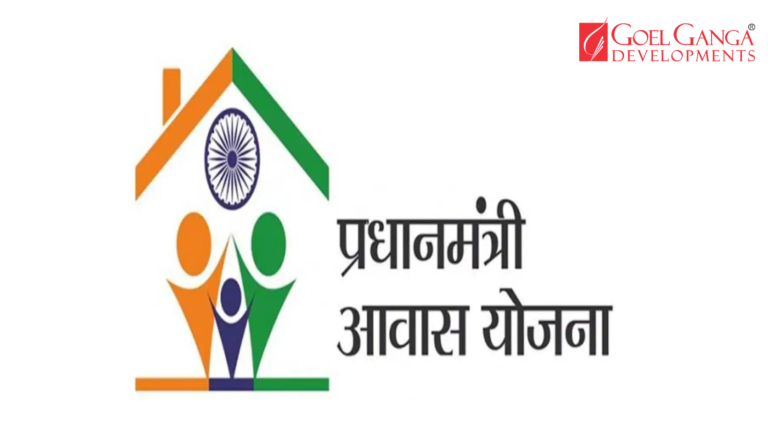One-on-One Online Tutors: Keep 7th Graders Focused and Engaged During Classes
Middle school can be a challenging time for students, especially in today’s digital learning environment. The transition to more complex subjects combined with increasing social pressures makes it difficult for many 7th graders to stay engaged with their studies.
According to a recent study by the Education Week Research Center, 46% of teachers report that student engagement has been a significant challenge during online learning.
As parents and educators search for solutions, personalized approaches to learning have emerged as powerful tools to combat this growing attention crisis.
The Unique Challenges of Virtual Learning for Middle Schoolers
Before diving into solutions, it’s important to understand what makes online learning particularly difficult for 7th graders. Their developing brains and unique developmental stages create specific obstacles that must be addressed.
The adolescent brain undergoes significant changes during the middle school years. At 12-13 years old, 7th graders’ prefrontal cortex the area responsible for focus and impulse control is still developing. This neurological reality makes sustained attention during virtual classes particularly challenging.
These students aren’t being deliberately difficult when they struggle to focus. Their brains are wired for distraction at this stage. Add in the myriad of notifications, social media, and other digital temptations available on their learning devices, and you have a recipe for wandering attention.
Social Development vs Academic Focus
For 7th graders, social concerns often take precedence over academics. They’re at a developmental stage where peer relationships become intensely important, making it difficult to prioritize math equations over social connections.
In traditional classrooms, social needs and learning happen simultaneously. But in virtual environments, students often feel isolated, which can lead to disengagement. When a student feels disconnected from peers and teachers, motivation naturally suffers. This social-emotional component is a crucial piece of the engagement puzzle that must be addressed.
Traditional Virtual Classrooms Fall Short
Large group virtual classes simply don’t provide the accountability and personalization that middle schoolers need. With numerous students on screen, it’s easy for a 7th grader to turn off their camera and tune out completely. One-on-one online math tutoring provides more focused attention. In these settings, tutors can more readily identify when a student is losing engagement and adjust their approach accordingly, offering support tailored to the student’s specific needs.
Benefits of Personalized Virtual Learning Approaches
When it comes to keeping 7th graders engaged online, personalized approaches offer significant advantages over traditional group instruction. By tailoring the experience to each student’s unique needs, tutors can overcome many common barriers to learning.
Customized Learning Paths That Address Individual Gaps
Every student brings different strengths and weaknesses to the table. One-on-one tutoring allows for precise identification of learning gaps through diagnostic assessments and ongoing observation.
Rather than following a one-size-fits-all curriculum, tutors can adapt lesson plans to target specific areas of difficulty. This might mean spending extra time on fractions for one student while focusing on algebraic concepts for another. The flexibility to adjust content delivery based on real-time feedback leads to more effective learning.
This personalization extends beyond subject matter to learning style as well. Some 7th graders are visual learners, while others grasp concepts better through hands-on activities or discussion. Effective tutoring approaches honor these differences rather than forcing students into a single learning method.
Immediate Feedback Builds Confidence
In large virtual classrooms, students might wait days for feedback on their work. With focus strategies for students built into one-on-one sessions, tutors provide instant correction and reinforcement, which is crucial for learning.
This immediate feedback loop helps students understand where they went wrong while the problem is still fresh in their minds. It also prevents the reinforcement of incorrect methods through repeated practice. For 7th graders, who often struggle with math confidence, this rapid feedback cycle can transform their relationship with challenging subjects.
The personalized nature of feedback in tutoring sessions also builds students’ belief in their abilities. When a tutor acknowledges specific improvements or clever problem-solving approaches, it validates students’ efforts in a way that generic praise cannot match.
Enhanced Accountability Reduces Distractions
The one-on-one structure creates natural accountability. Students know they can’t hide in the background or multitask without the tutor noticing immediately. With engaging online classes designed specifically for middle schoolers, tutors can implement strategies like frequent check-ins, interactive elements, and varied activities to maintain focus. These techniques keep sessions dynamic and prevent the attention fatigue that often occurs in longer group classes.
Tutors also help students create distraction-free learning environments by establishing routines and expectations specific to each child’s situation. These personalized strategies are far more effective than general classroom management approaches used in group settings.
Effective Tutoring Techniques for Digital Engagement
Keeping 7th graders engaged online requires specialized techniques that address their unique developmental needs. Effective tutors employ a variety of strategies to maintain attention and maximize learning.
Active Learning Approaches That Require Participation
Passive learning rarely works for middle schoolers, especially in digital formats. Effective tutors incorporate interactive elements that require student involvement throughout the session. Rather than lecturing, they might use digital whiteboards where both tutor and student can write simultaneously.
Problem-solving becomes a collaborative process, with the student leading whenever possible. This active participation keeps minds engaged and prevents the zoning out that often happens during more passive instruction.
Voice and choice also play crucial roles in engagement. When students have input into what they’ll work on or how they’ll demonstrate learning, their investment increases dramatically. Smart tutors build structured choices that give students agency while still covering essential content.
Building Relationships That Foster Engagement
The mentor-student connection forms the foundation for effective online tutoring for 7th graders. When students feel their tutor genuinely cares about them as individuals, motivation and effort naturally increase.
Successful tutors take time to learn about their students’ interests, concerns, and learning preferences. They might start sessions with brief check-ins about weekend activities or upcoming events the student is excited about. These seemingly small interactions build the trust necessary for productive learning relationships.
Digital Tools That Enhance Connection
Technology should enhance rather than hinder the learning experience. Effective tutoring techniques leverage age-appropriate digital tools that capitalize on middle schoolers’ comfort with technology.
Interactive simulations, digital manipulatives, and educational games can transform abstract concepts into engaging experiences. Screen sharing allows tutors to guide students through complex problems while still maintaining the personal connection essential for engagement.
The best tutors stay current with educational technology trends while being selective about which tools truly add value. The goal is always to support learning and engagement, not to use technology for its own sake.
Measuring Success Beyond Grades
While academic improvement is certainly important, effective one-on-one tutoring offers benefits that extend far beyond test scores. A holistic approach to assessment provides a more complete picture of student progress.
Engagement Indicators Worth Tracking
Attentive tutors monitor subtle signs of increased engagement that might not be captured by traditional metrics. Participation quality, for example, offers valuable insights into a student’s cognitive and emotional investment.
Are they asking more thoughtful questions? Contributing ideas without prompting? These behavioral shifts often precede improvements in grades and can encourage during challenging learning periods. By tracking these indicators, tutors can celebrate progress even when academic results are still developing.
Building Self-Assessment Skills
One of the most valuable abilities a tutor can nurture is a student’s capacity for self-reflection. Through guided questioning and modeling, tutors help 7th graders develop metacognitive skills, the ability to think about their own thinking and learning processes.
Students might be encouraged to rate their understanding after each session or identify specific strategies that helped them grasp difficult concepts. These self-assessment practices build independence and self-awareness that benefit students far beyond the tutoring relationship.
The Long-Term Impact on Learning Habits
Perhaps the most important measure of tutoring success is the development of sustainable learning habits. Effective tutoring techniques don’t just help students master current content, they build skills for future academic success.
When tutors explicitly teach study strategies, time management, and organization as part of their sessions, students gain tools they can apply independently. These executive function skills often lag in middle schoolers but are crucial for long-term academic success.
Comparing Traditional vs One-on-One Online Learning Models
| Feature | Traditional Virtual Classroom | One-on-One Online Tutoring |
| Attention to individual needs | Limited by group size | Fully customized to the student |
| Feedback timing | Delayed, often days later | Immediate and specific |
| Ability to adjust the pace | Follows the group average | Adapts to individual students |
| Student participation | Optional, can hide in a group | Required and constant |
| Relationship development | Limited by time constraints | Deep connection possible |
| Distraction management | General approaches only | Personalized strategies |
Making Online Learning Work for Your Middle Schooler
The transition to more complex academics in 7th grade presents challenges that are perfectly addressed by one-on-one tutoring. By understanding the unique developmental needs of middle schoolers and implementing strategies specifically designed for this age group, parents can help their children thrive academically despite the challenges of online learning.
The personalized attention, immediate feedback, and relationship-building aspects of one-on-one tutoring create an environment where students can develop both academic skills and the confidence to apply them. When implemented effectively, these personalized approaches don’t just improve grades, they transform students’ relationships with learning during a critical developmental period.
Could your 7th grader benefit from the focused attention and engaging strategies that personalized tutoring provides? The right support now might make all the difference in their academic journey.
FAQs
- How Can Personalized Tutoring Transform Math Learning?
One-on-one tutoring individualizes instruction to close specific learning gaps and accelerate progress. Tutors provide immediate feedback, build confidence through targeted success experiences, and create personalized study habits and test-taking strategies tailored to each 7th grader’s unique learning style.
- What Strategies Keep Students Engaged in Online Sessions?
Effective online tutors use interactive learning activities, multimedia content, and personalized learning paths to maintain attention. They keep lessons bite-sized, incorporate gamified elements, provide constant feedback, facilitate peer learning when appropriate, and connect abstract concepts to real-world applications that resonate with middle schoolers.
- How Do You Find the Right Online Tutor for Your 7th Grader?
Look beyond just credentials to the teaching style and personality compatibility. Schedule trial sessions with potential tutors to observe how they interact with your child. The right tutor should demonstrate subject mastery, patience, and the ability to explain concepts in multiple ways while also connecting with your child on a personal level.
Also Read-How To Choose the Best Self-Service Knowledge Base Software for Your Business




